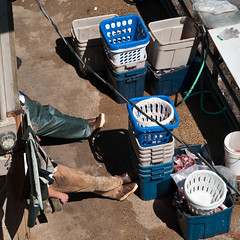 A three-year effort to flesh out existing dollars-and-cents data about coastal fishing communities with sociological information about how fishing affects community life is paying off in broader awareness by resource managers and industry of the social and economic culture of three coastal Oregon towns.
A three-year effort to flesh out existing dollars-and-cents data about coastal fishing communities with sociological information about how fishing affects community life is paying off in broader awareness by resource managers and industry of the social and economic culture of three coastal Oregon towns.
The project, initiated by the fishing community and Oregon Sea Grant with support from NOAA Fisheries and the Oregon State University Sustainable Rural Communities Initiative, has generated the first-ever “long-form” sociological profiles of the communities of Garibaldi, Newport and Port Orford. Other coastal towns are expressing interest in developing profiles of their own.
The fishing industry employs thousands of Oregonians and generated $105 million in fish-landed value in 2009 alone. In 2007, the National Oceanic and Atmospheric Administration (NOAA) published “short-form” economic profiles attempting to describe how specific communities benefit from fishing.
“The NOAA profiles area useful step in the right direction, but limited in scope,” said Flaxen Conway, Oregon Sea Grant’s Extension community outreach specialist and a professor of Sociology at OSU. “These long form profiles provide a more detailed, rich description of this socially, culturally, and economically-important industry,” she said.



